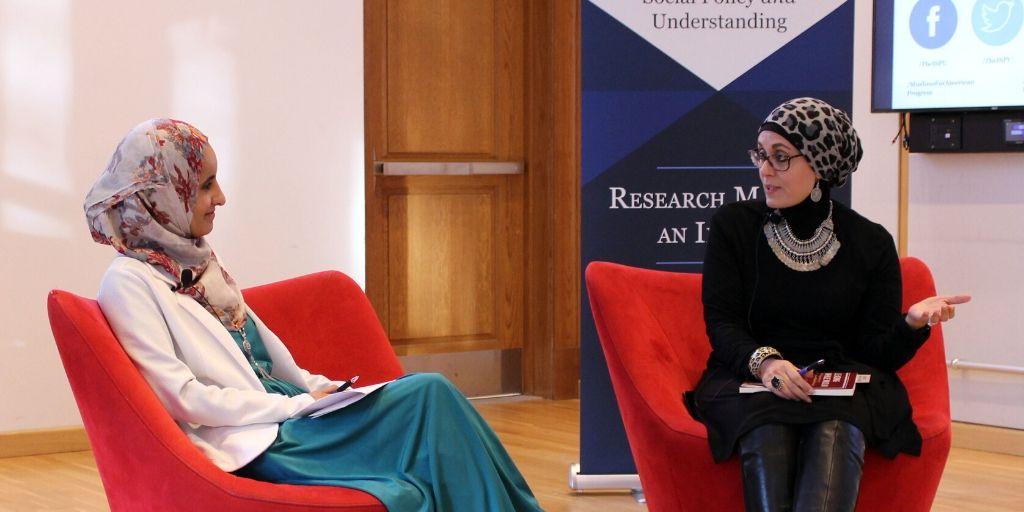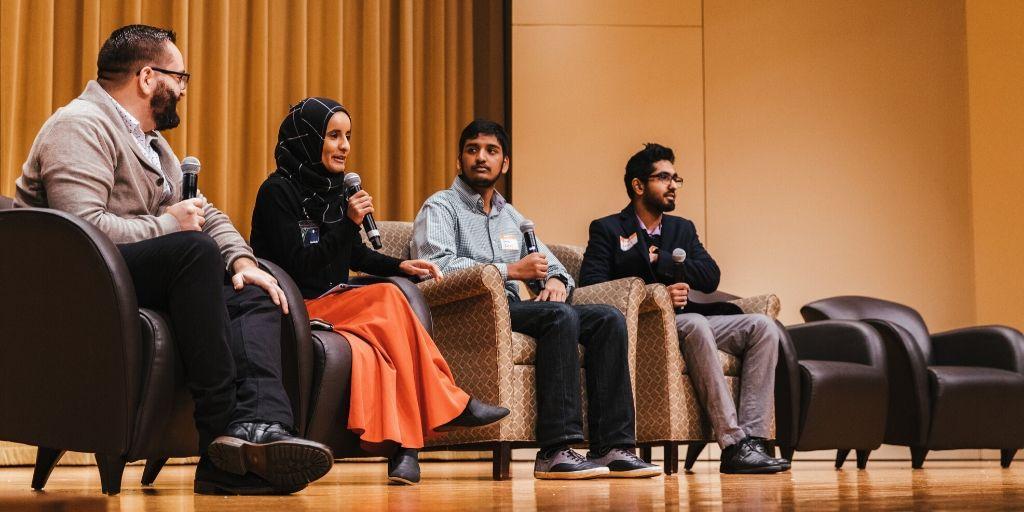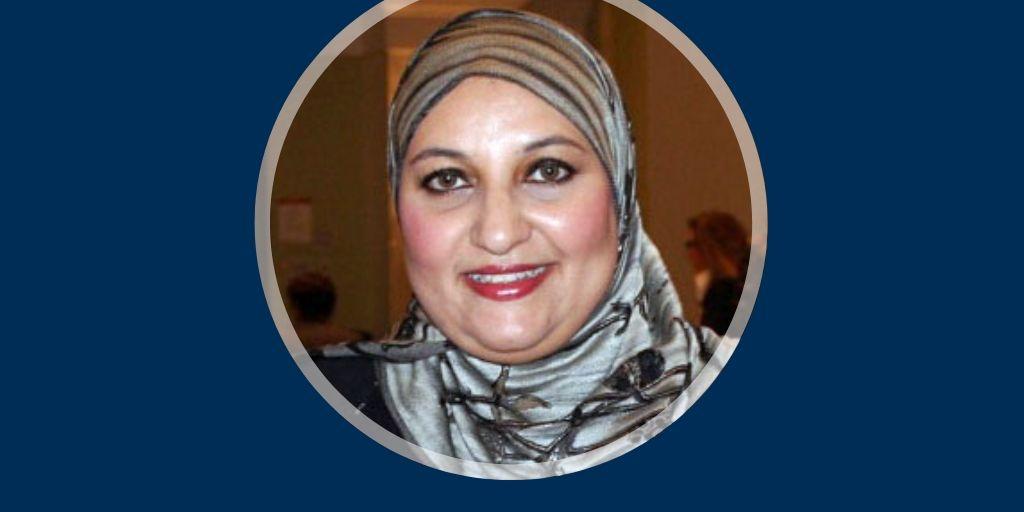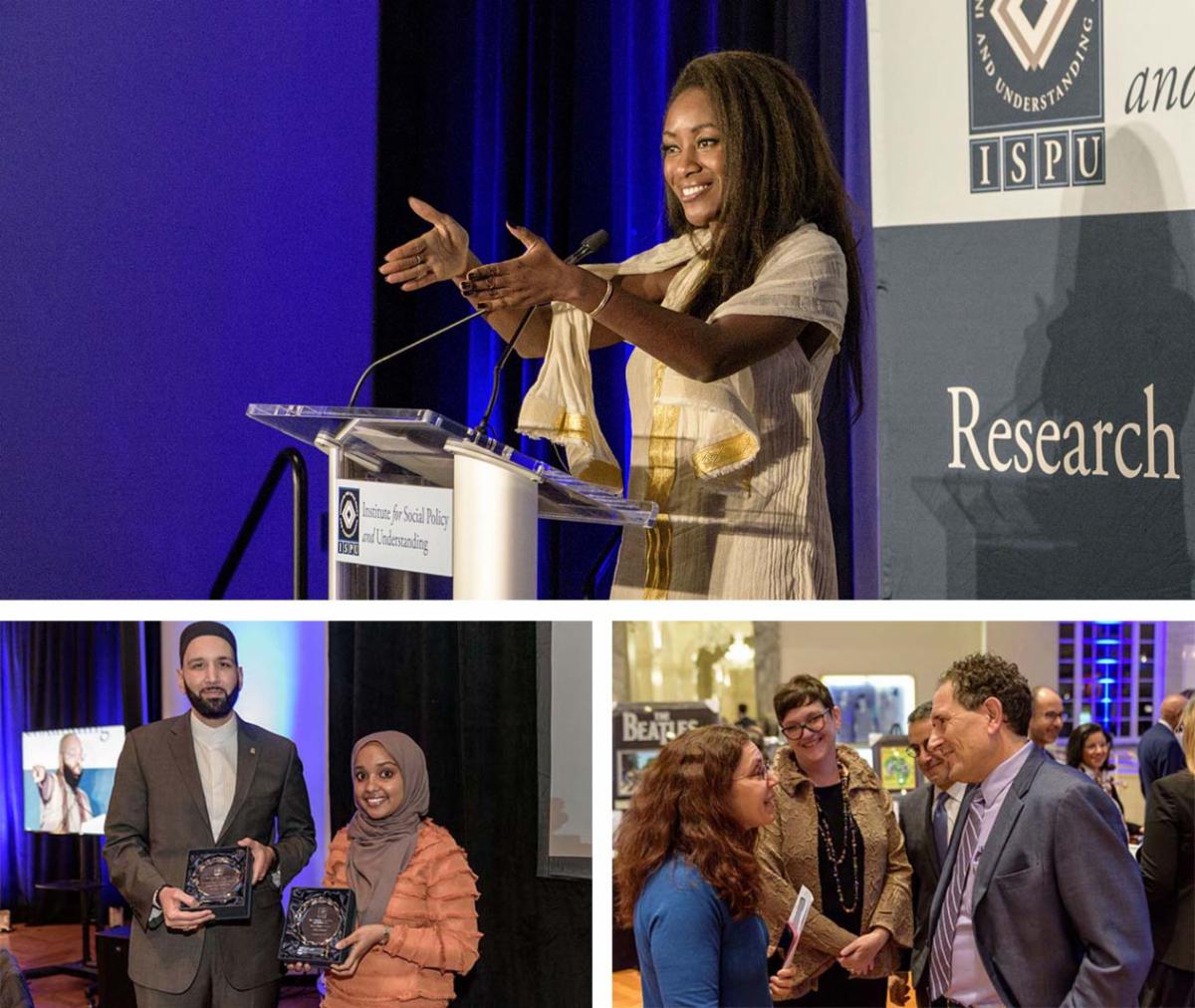Highlights from the past 365-ish days |
|
ISPU staff during one of many (many, many) Zoom calls |
|
During these extraordinary times ... |
|
During this extraordinary year, many of our donors, supporters, and partners have been on the frontlines, working hard for the well-being of our communities and country. When we reflect on 2020, we are moved by your commitment to our work. You have made sure the essential research you and millions of other Americans depend on is available to all, even amid these unprecedented times.
This means you''ve made sure research including toolkits on Black Muslim experiences, COVID-19 resilience, Muslim mental health and resources for journalists, policymakers, educators, and imams have been available and in use during this year. As you know, this research transforms, reveals, reframes, and identifies the areas where we in our families, our individual communities, and as a country can improve. And your support has made it all possible.
As we reflect on the challenges and successes of this year, we''re sharing a few of the new tools developed in 2020 that helped inform this most unusual moment. We are extraordinarily grateful for your support.
|
|
We studied community resilience in the face of COVID-19 |
|
On Eid al-Fitr we launched a research project documenting the American Muslim response to the COVID-19 crisis. Our interactive map lets you see what Muslims have been doing in your state to address the pandemic—and these stories of service include everything from providing healthcare workers with mental health support to donating much-needed funds to families hardest hit by the crisis.
This project is published in partnership with the National Muslim Taskforce on COVID-19 (a coalition chaired by AMHP, FCNA, IMANA, and ISNA), U.S. Council of Muslim Organizations, Muslim American Society (MAS), Islam in Spanish, National Black Muslim COVID Coalition, and Poligon Education Fund.
Stay tuned in 2021 for an expansion of this project that we''re excited to share.
|
|
We shared resources on creating diverse, inclusive Muslim spaces |
|
In March, houses of worship and community centers across America closed to fight the spread of COVID-19. During this unprecedented time of closure, we knew there was a unique opportunity to spend this time away creating more welcoming spaces for all. In June, we hosted a weekly webinar series on ways to foster more welcoming, dynamic, and inclusive Muslim spaces. Each of these five webinars focused on a different group and their unique needs. If you missed a session, don’t worry—you can watch our recordings on YouTube.
|
|
We shared research on Black Muslim experiences |
|
From independence to abolition, the Civil Rights Movement to the current movement for Black Lives, Black Muslim history is defined by resilience and struggle. Today, they are the plurality of the American Muslim community, yet as a group, Muslims who are Black experience a range of challenges due to both anti-Black racism and Islamophobia, and their voices and experiences are too often left out of the conversation. In June, we launched a new ISPU landing page highlighting Black Muslim experiences that are too often ignored. |
|
Our scholars shared their wisdom |
|
As COVID-19 closures shut off traditional in-person learning opportunities, they opened new opportunities for online learning. For 12 weeks, we featured enlightening conversations with ISPU Scholars on Facebook Live. These scholars shared fascinating insights on topics including Islamic bioethics, online learning strategies, Islamophobia, bullying, artificial intelligence and more. Access the full archives of Wisdom Wednesday Season One via this playlist. |
|
We launched our fifth American Muslim Poll |
|
On October 1, we published American Muslim Poll 2020: Amid Pandemic and Protest, the fifth annual poll of attitudes and policy preferences on issues concerning American Muslims across faith and non-faith groups. This nationally representative survey includes groundbreaking data on Americans who are Muslim, Jewish, Protestant, Catholic, white Evangelicals, and the non-affiliated.
This year''s poll was fielded amid the earliest closures due to COVID-19 and just before the massive uprising in pursuit of racial justice after the murder of George Floyd, providing a one-of-a-kind snapshot of the attitudes of the American public during an unprecedented time. This research will inform journalists, policymakers, advocates, organizers, educators, and the general public for years to come. We hosted a series of webinars in October deep-diving the research with groups of experts. Catch up on those here.
|
|
We briefed policymakers—and equipped others to do the same |
|
In early March, with the support of honorary host Congresswoman Rashida Tlaib, ISPU filled a room (prior to much-needed social distancing) on the Hill for a Congressional briefing on religious-based bullying and discrimination. Our partners at CAIR, The Sikh Coalition, Justice for Muslims Collective, and American Muslim Health Professionals (AMHP) helped us engage members of the public and representatives of Congressional offices with important data on the issue as well as strategies for addressing the problem. If you missed the briefing, watch our recording of the event and read panelist Aasees Kaur’s summary in The Hill.
That event is just one example of our work to equip policymakers with rigorous research. This year, we shared our research with a number of presidential candidates, some of whom included our research in their policy platforms. And we worked so others would be better equipped to communicate to policymakers, too. This fall, in collaboration with Yaqeen Institute, we published a policymakers briefing book, a guide containing authoritative information about American Muslims and the faith they hold. We intend this tool to be useful for Muslim and allied communities to share with policymakers both in their local communities, and at the highest levels.
|
|
We gathered experts to discuss the unique needs created by COVID-19 |
|
The pandemic has caused unique challenges and disproportionate impact. ISPU hosted webinars to address some of these needs.
After racial data for COVID-19 patients in many states was available, it became clear that COVID-19 is disproportionately impacting Black communities all across the U.S.—including and especially Black Muslims, which make up between a quarter and a third of American Muslims overall. In this webinar from ISPU and the National Black Muslim COVID Coalition, a panel of experts including Kameelah Mu''Min Rashad, Imam Tariq El-Amin, and Margari Hill discussed the current state of the COVID-19 pandemic in Black Muslim communities, the historical and current factors that contribute to the current crisis, and the holistic approach that is needed to slow down the impact and move toward healing.
School closures, job loss, childcare challenges, and illness have created relationship challenges. ISPU Scholars Quaiser Abdullah, Manijeh Daneshpour, and Altaf Husain gathered to discuss strategies to maintain healthy relationships while in quarantine, including evidence-based strategies to nurture your relationships in quarantine and communication pitfalls we often fall into and how to avoid them.
|
|
We celebrated our award-winning board |
|
In July, we were so honored to announce ISPU’s board of directors was the recipient of this year’s Center for Nonprofit Advancement Board Leadership Award. This award spotlights outstanding leadership from nonprofit boards of directors, acknowledging the critical role that boards play in building and sustaining successful organizations. It recognizes that a good board ensures their organization is well led, well supported, and responsive to the people and communities it serves. As our Executive Director Meira Neggaz wrote in the announcement, "ISPU’s board is all that and more... I am so excited that these incredible leaders have received this well-deserved recognition. They lead with integrity, serve with passion, and govern with excellence." |
|
ISPU Board Chair Mustafa Ahmed and Executive Director Meira Neggaz at the 2019 ISPU Annual Banquet |
|
There are many unknowns as we move into the next year together, but one thing is certain: thanks to your support in 2020, ISPU will ensure groundbreaking research on Americans who are Muslims will continue into next year and beyond. We are so excited to share our slate of projects and plans for 2021 with you, all funded by your commitment and support. If you''re looking to become more deeply involved with our work, will you consider becoming an ISPU sustainer? Sustainers are monthly donors that allow us to plan ahead, launch more ambitious projects, build a strong institution, and maximize our nationwide impact. |
|
ISPU produces research that seeks to build understanding, promote pluralism, and strengthen communities, but we cannot do so without your help. Please consider supporting us. |
|
ISPU is a 501(c)(3) nonprofit research and education institute. Contributions to ISPU are zakat-eligible and tax-deductible to the extent permitted by law.
|
|
Did a friend forward you this email? Sign up to receive ISPU updates in your inbox.
|
|
info@ispu.org | www.ispu.org
Washington, D.C. Office | 1110 Vermont Ave NW, Suite 500
Washington, DC 20005 | Tel: (202) 768-8749
Michigan Office | 6 Parklane Blvd, Suite 510
Dearborn, MI 48126 | Tel: (313) 436-0523
|
|
|
|
|
|
|












 Arts and Entertainment
Arts and Entertainment Business and Industry
Business and Industry Computer and Electronics
Computer and Electronics Games
Games Health
Health Internet and Telecom
Internet and Telecom Shopping
Shopping Sports
Sports Travel
Travel More
More